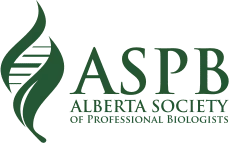NRTG’s MicroCourses offer a dynamic training pathway that’s as flexible as it is enriching to build expertise. Our Planning & Designing Fish Habitat Assessments MicroCourse, spanning four hours, delivers in-depth training in an easily digestible format. It’s designed to maximize your skills for immediate application.
Assessing fish habitat has a long history as an integral part of successful fisheries management; it is even more important today as the challenges facing it are more profound than ever. The truism “no habitat; no fish” remains true in the 21st Century. There exist a myriad of methods to assess habitat and this array can be confusing when faced with the decisions of which specific sampling methods to use for a given project. What are the strengths and weaknesses of the different approaches?
In this MicroCourse we examine how to design fish habitat assessments based on the desired project objective. Are we doing a baseline survey in advance of a proposed development? A reconnaissance survey? Or perhaps designing a monitoring program that will measure potential habitat changes downstream from a mine or forestry project? Perhaps an assessment to identify limiting factors to fish production and from this design restoration activities?
Each of these will require different approaches to the assessment to gather the important information on which to make decisions. Planning & Designing Fish Habitat Assessments will provide guidance on how to select the appropriate methods depending upon the purpose of the survey.
Course will be 4 hours long.
Instructor Profile
Alan McNeill, BSc.
Fisheries Biologist

Alan McNeill has 25 years experience in fisheries management specializing in freshwater species. His primary interests have been population abundance for various finfish species in streams and lakes, habitat assessment for salmonids, creel and angler surveys, promoting sportfishing, practicing aquaculture, and regulation development.
In his career he has worked with the Department of Fisheries and Oceans and the Nova Scotia Department of Fisheries and Aquaculture. Until he recently retired, he was Director of the Inland Fisheries Division of the Nova Scotia Department of Fisheries and Aquaculture. He is also the Past President of the Atlantic International Chapter of the American Fisheries Society and recipient of the Premiers Award of Excellence in 2007 for his work on the Environmental Monitoring Program for Marine Aquaculture.







